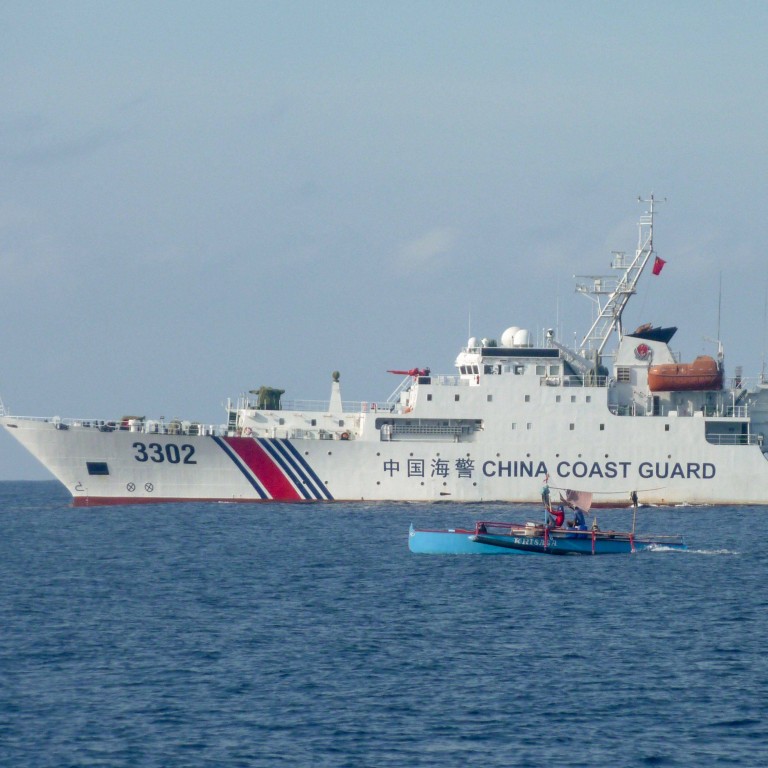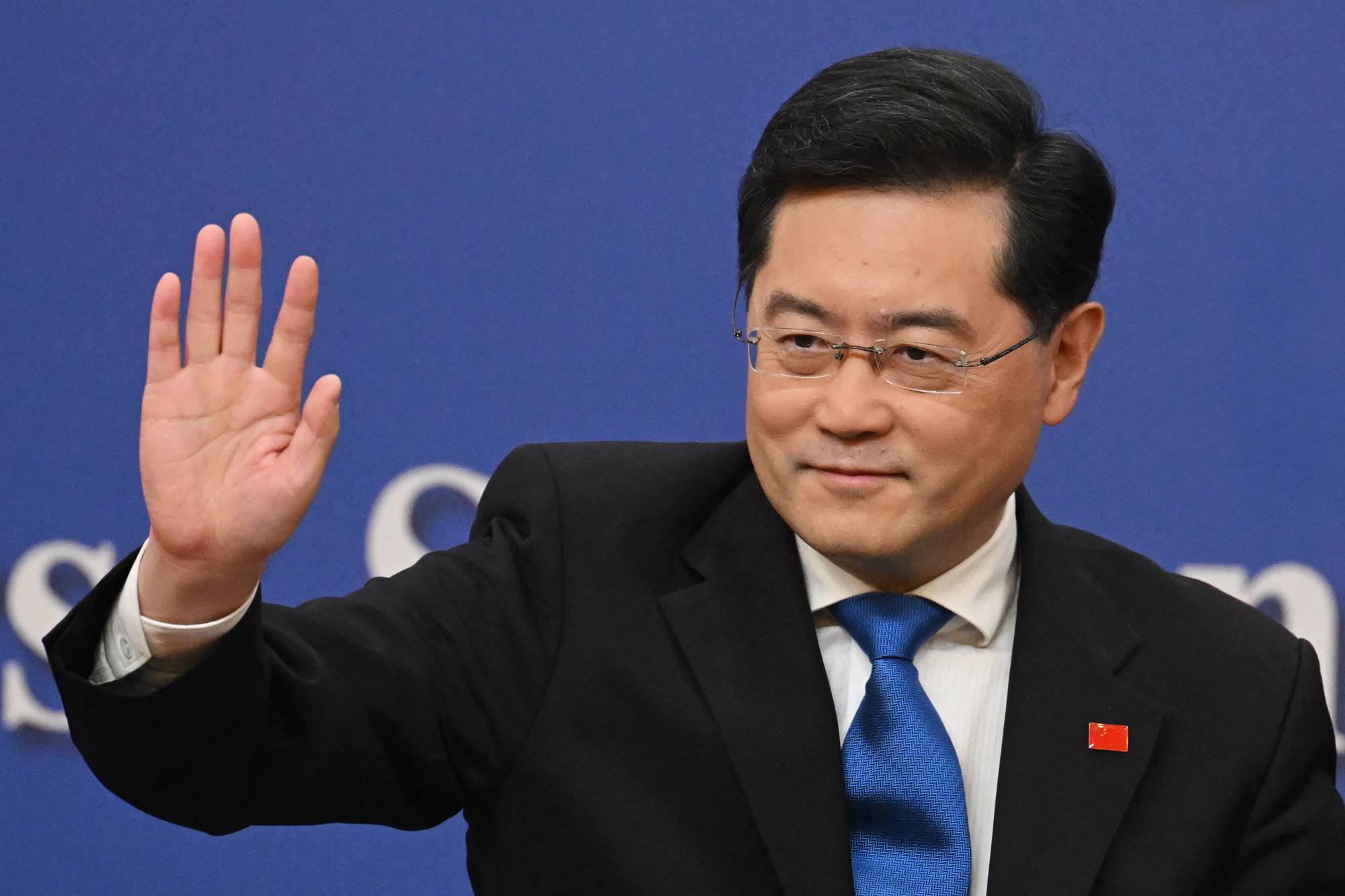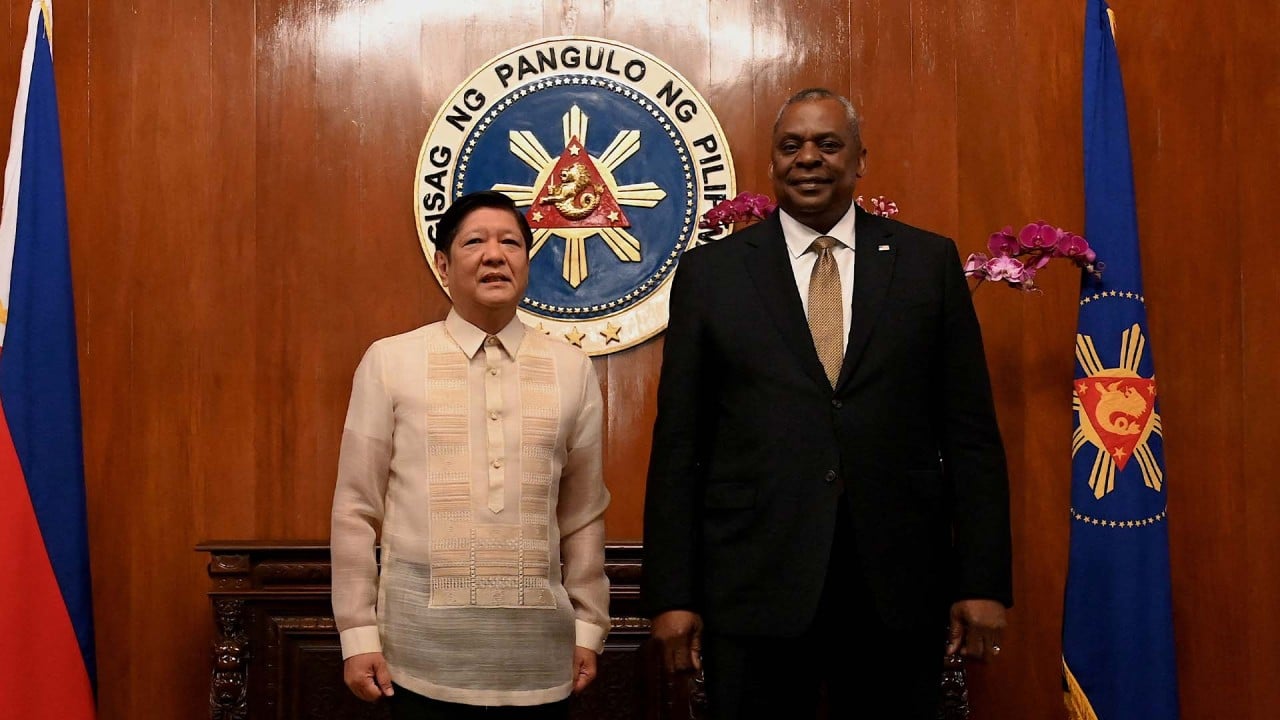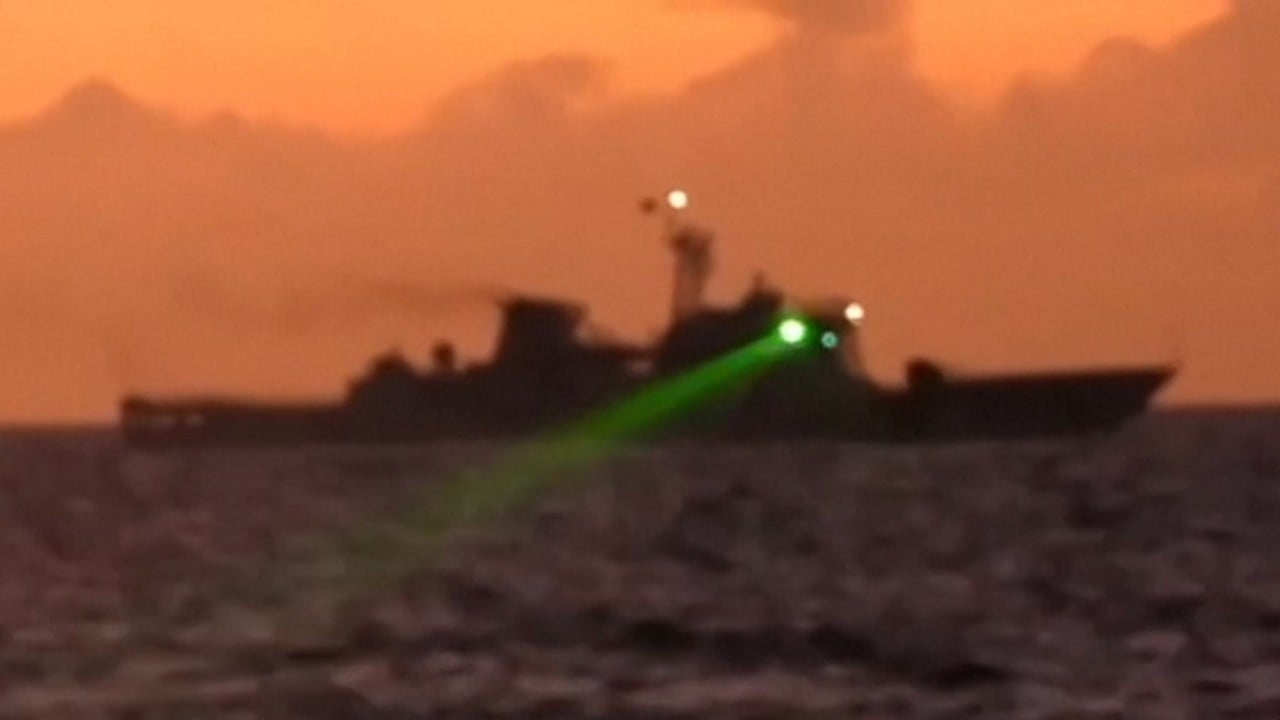
China’s foreign minister heads to Manila amid ‘big ups and downs’ in relations
- Qin Gang expected to discuss cooperation on agriculture, trade, energy and infrastructure with his Philippine counterpart
- Security issues including the South China Sea and Taiwan are also likely to be high on Qin’s agenda, according to observers
It will be Qin’s first visit to the Southeast Asian nation since he took office at the end of last year. He will also be the highest-level Chinese official to visit the Philippines since President Ferdinand Marcos Jnr’s trip to Beijing in January, when the two sides pledged to strengthen strategic cooperation and manage their South China Sea dispute.
“There have been some big ups and downs in relations between China and the Philippines since the beginning of the year, and competition between China and the US is getting intense with no signs of easing,” said Chen Xiangmiao, an assistant research fellow with the National Institute for South China Sea Studies in Hainan.
“These are all part of the considerations behind this trip.”
Qin will meet his Philippine counterpart Enrique Manalo during the three-day visit and they are expected to discuss “increasing and strengthening cooperation in the fields of agriculture, trade, energy, infrastructure and people-to-people relations, among others”, according to a Philippine foreign ministry statement.
Observers say security issues including the South China Sea and Taiwan are likely to be high on Qin’s agenda during talks with Philippine officials.
Tensions flared in the South China Sea in mid-February when Manila accused a Chinese coastguard vessel of aiming lasers at one of its ships and disrupting a supply mission in the contested Spratly Islands.
Meanwhile, Beijing is concerned that an expanded US military presence in the region will compromise its strategic interests, particularly in the South China Sea and the Taiwan Strait – both potential flashpoints for the two superpowers.
There are already five US military bases in the Philippines. One of the four new bases is on Balabac Island, close to the disputed Mischief and Fiery Cross reefs in the Spratly archipelago, where China has built artificial islands and installed military facilities including runways and radar systems.
Two other new sites, a naval base and an airport, will be in Cagayan, in northern Luzon, about 500km (310 miles) from the Taiwanese city of Kaohsiung – making them the closest US military bases to Taiwan.
“With the simultaneous developments in the South China Sea and Taiwan, there is now a convergence and confusion of security concerns,” said Aaron Rabena, a research fellow at Manila-based think tank Asia-Pacific Pathways to Progress and a member of the Philippine Council for Foreign Relations.
According to Chen, China will be looking to keep ties with the Philippines on track to try to prevent its neighbour from getting drawn into its rivalry with the US over the self-ruled island, which Beijing sees as part of its territory.
“The Taiwan issue is now emerging as a factor between China and the Philippines,” Chen said. “[Beijing] needs to manage the risks before it really becomes a stumbling block or a disruptive factor in Sino-Philippine relations.”
These concerns were aired by China’s ambassador to the Philippines, Huang Xilian, at a forum in Manila on Friday. Huang said Manila was “advised to unequivocally oppose ‘Taiwan independence’ rather than stoking the fire by offering the US access to the military bases near the Taiwan Strait if you care genuinely about the 150,000 [overseas Filipino workers]”.

Rabena said Manila was gravitating towards Washington because of security concerns about Beijing, particularly in the South China Sea.
He noted that the defence pact – the Enhanced Defence Cooperation Arrangement allowing the US military to build facilities at five Philippine bases – was signed in 2014, after China and the Philippines were locked in a tense stand-off over the disputed Scarborough Shoal in the South China Sea.
“But the timing of EDCA 2.0 (and their location which includes parts close to Taiwan) coincides with Sino-US tensions over Taiwan, which gives Beijing the impression that Marcos might be siding with the US on Taiwan,” Rabena said.
Chen expected that Qin would also seek to push forward trade ties with the Philippines during his visit.
Fourteen agreements – in areas ranging from agriculture and infrastructure to maritime security and tourism – were signed by the two sides when Marcos visited Beijing.
“While there are some negative factors in diplomatic ties, the two sides can still build a better environment for economic cooperation,” Chen said.



